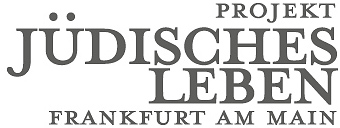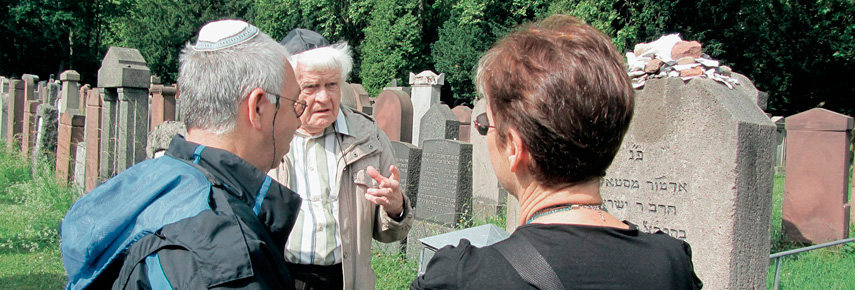Biographical notes
Name:
Elisabeth Reinhuber , née Calvelli-Adorno
Father:
Franz Calvelli-Adorno: by birth (maternal line) „Mischling 1. Grades“
- 1933 in Dortmund dismissed as a judge and moving to Frankfurt
- 1938/39: planning to emigrate which becomes impssible because of the war
- survived WW II in Germany
- 1945: Grandmother Helene Calvelli-Adorno deported to Theresienstadt
Elisabeth Reinhuber, born in 1925
- School: Anna-Schmidt-Schule
- 1939 goes to England, together with her brother, on a “Kindertransport”
- 1955 Return to Germany
Sources
1. Agathe, Elisabeth and Ludwig with their grandfather Louis Calvelli-Adorno in
Dortmund 1931
2. Elisabeth and Agathe Calvellli-Adomo 1938 in Frankfuit, oder Elisabeth and Ludwig
Calvelli-Adorno, Whitsun 1939, shortly before leaving with the Kindertransport to
England
3. Franz Calvelli-Adorno 31.10.1939 in army uniform. He was dismissed from the
Army because he was a “half Jew”.
4. Helene, Franz and Agathe Calvelli-Adorno in 1940 without the two children Elisabeth
and Ludwig because they were in England.
5. Franz Calvelli-Adorno 1944. The family lived in Zwingenberg.
6. “Butterdos”, the house in Zwingenberg. Family Calvelli-Adorno lived there at the
end of the war.
7 . Family Calvelli-Adorno February 1942 in Zwingenberg (Louis Calvelli-Adomo, his
wife Helene, the owner of the house Clementine Kühner, Helene Calvelli-Adorno and
her daughter Agathe, between them Gabriele Becker, foster daughter of Clementine
Kühner).
8. First reunion in England after 8 years’ separation.
9. Elisabeth Reinhuber as speaker at a meeting at the Bildungsstätte Anne Frank,
March.2013.
Sources:
Reinhuber-Adorno, E. (2004): “In zwei Ländem zu Hause” in: Mainzer
Geschichtsblätter, Heft 13, Hrsg: Verein für Sozialgeschichte Mainz: Mainz
Kilthau, F. (2002): Das Kriegsende 1945 inZwingenberg an der Bergstraße nach
Aufzeichnungen der Familie Calvelli-Adorno, in: Geschichtsblätter Kreis
Bergstrasse, Band 335, Verlag Larissa: Lorsch
Hessisches Hauptstaatsarchiv Wiesbaden
Gespräch mit und unveröffentlichte Erinnerungen von Elisabeth Reinhuber,
Photos:
Elisabeth Reinhuber und Agathe Jaenicke
Research and Text:
Angelika Rieber
Translation
Elisabeth Reinhuber

